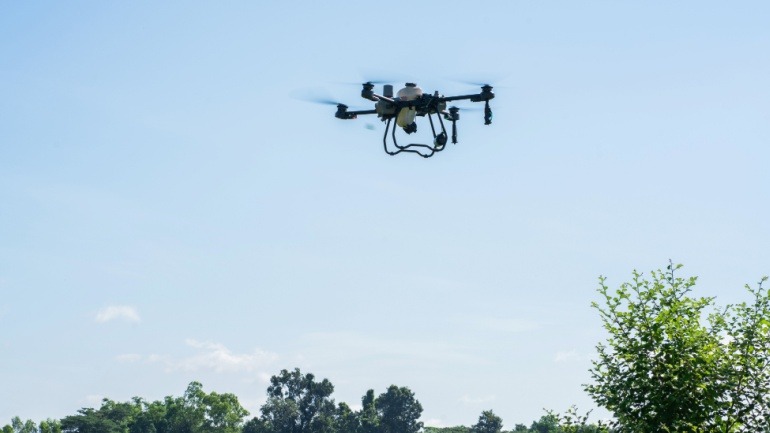T-Mobile US is redefining telecommunications by launching its innovative beta direct-to-cellular service with Starlink in 2025, aiming to eliminate cellular dead zones. Starting with text messaging, with future voice and data expansion, this service promises to enhance connectivity seamlessly.
Congress is tackling the challenge of replacing Chinese telecommunications equipment in U.S. networks by funding the “rip and replace” initiative. This boosts efforts to remove potential threats and secure rural telecommunications connections.
Nokia and Motorola Solutions have launched a groundbreaking 4G/5G drone solution to bolster public safety and industry operations. Integrating advanced hardware and software, this innovative system supports first responders and critical industries.
The 37 GHz spectrum band offers a unique opportunity for shared federal and non-federal use, leveraging innovative coordination frameworks. Key features include dual-access strategies, enabling dynamic spectrum sharing for applications like IoT and high-capacity networks.
T-Mobile is revolutionizing VoIP communication with its groundbreaking 5G standalone network, achieving uplink speeds of 2.2 Gbps using New Radio Dual Connectivity. By aggregating 2.5 GHz and mmWave spectrum, T-Mobile significantly enhances VoIP performance, catering to demanding applications like live streaming and gaming. This innovation elevates VoIP experiences worldwide.
Sinch, which is pioneering the way the world communicates through its Customer Communications Cloud, today announced that it is paving the way for the transformation of emergency communications with its advanced Next Generation 911 (NG911) technology. By integrating a wide range of multimedia options — such as voice calls, real-time text (RTT), internet of things (IoT) data and video — Sinch enhances accessibility and ensures more reliable and comprehensive communication than voice-only 911 services. These NG911 innovations ensure first-responders receive mission-critical, real-time data, improving response times and public safety.
As the Federal Communications Commission evaluates T-Mobile US’s proposed acquisition of UScellular. This merger promises to reshape the VoIP landscape by combining resources to tackle fierce competition. By leveraging UScellular’s spectrum and infrastructure, T-Mobile aims to enhance its VoIP offerings, transforming market dynamics.
Starlink’s temporary FCC approval for direct-to-device services highlights the vital role of VoIP technology during emergencies. By partnering with T-Mobile, Starlink enables emergency alerts via satellite in hurricane-stricken North Carolina, offering free internet for 30 days.
Airtel is tackling India’s growing spam call issue with its latest AI-powered spam detection solution. This innovative system analyzes and alerts users within 2 milliseconds, detecting over 100 million spam calls daily. Available to all 387 million Airtel customers for free, it sets a new benchmark in AI-driven telecom security.
Regulatory compliance is crucial for VoIP carriers to ensure the delivery of reliable communication services. Non-compliance can result in severe penalties, loss of licenses, and reputational damage. This article provides an overview of key regulations, such as data protection and emergency services, that carriers must navigate to operate legally and protect consumers.













